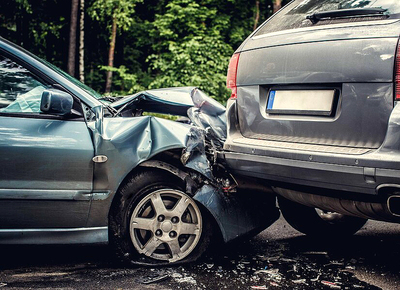What Should I Do Immediately After a Car Accident in Virginia?
Car accidents happen unexpectedly and can leave you feeling confused and overwhelmed. In Virginia, knowing what steps to take after an accident can make a significant difference in how smoothly the situation is handled. From ensuring your safety to protecting your legal rights, following the right steps is crucial. Staying calm and organized will help you handle the aftermath efficiently. The decisions you make in the minutes following an accident can impact your insurance claim and any potential legal issues. It’s important to be aware of both your responsibilities and your rights under Virginia law.
Check for Injuries and Call for Help
The first thing you should do after a car accident is to check for injuries. Your safety and the safety of others involved is the top priority. If anyone appears to be hurt, you should immediately call 911. Even if injuries seem minor, it’s best to get medical attention right away, as some injuries don’t show symptoms until later. In Virginia, you are legally required to stay at the scene of the accident until authorities arrive. Failing to do so could result in legal consequences. Once you’ve ensured everyone’s safety, stay calm and wait for help to arrive.
Move to a Safe Location if Possible
If your car is drivable and it’s safe to do so, move your vehicle out of traffic. This will help prevent further accidents and keep the road clear. Virginia law encourages drivers to move their vehicles out of harm’s way when possible. If you cannot move your car or if it is unsafe to do so, turn on your hazard lights to alert other drivers. Staying in the middle of traffic can be dangerous, so it’s crucial to get to a safe spot when you can. Always prioritize safety before worrying about property damage. Once you are in a safer location, you can start focusing on the next steps.
Exchange Information and Document the Scene
After an accident in Virginia, you are required to exchange information with the other driver involved. This includes your name, contact information, driver’s license number, and insurance details. Additionally, you should document the scene as much as possible. Take photos of the damage to both vehicles, the surrounding area, and any visible injuries. These pictures can serve as evidence for your insurance claim and any legal action that might follow. If there are any witnesses, get their contact information as well. The more details you gather, the stronger your case will be if there are disputes later on.
File a Police Report
In Virginia, it’s important to file a police report after an accident, especially if there are injuries or significant property damage. The police will document the scene of accident, interview witnesses, and create an official report that can be used for insurance claims and legal proceedings. When talking to the police, stick to the facts. Avoid admitting fault or making statements that could be misinterpreted later. Even if the accident seems minor, a police report is valuable when dealing with insurance companies. It provides an unbiased account of what happened and can be used as crucial evidence.
Notify Your Insurance Company
After you have gathered information and filed a police report, you should contact your insurance company to report the accident. Virginia law requires you to report accidents to your insurer in a timely manner. Be honest and provide them with all the necessary information about the accident. Your insurance company will guide you through the claims process and let you know what steps to take next. Failing to report the accident to your insurer could lead to complications with your claim later on. It’s best to notify them as soon as possible to avoid any issues.
Handling the aftermath of a car accident in Virginia can be challenging, but knowing the right steps will help you stay protected. Your safety and legal responsibilities should come first. By checking for injuries, moving to safety, exchanging information, documenting the scene, and filing a police report, you can ensure that you’ve done everything necessary to protect your rights. Keeping your insurance company informed is also essential for a smooth claims process. Each step is vital in helping you recover and move forward after an accident.



